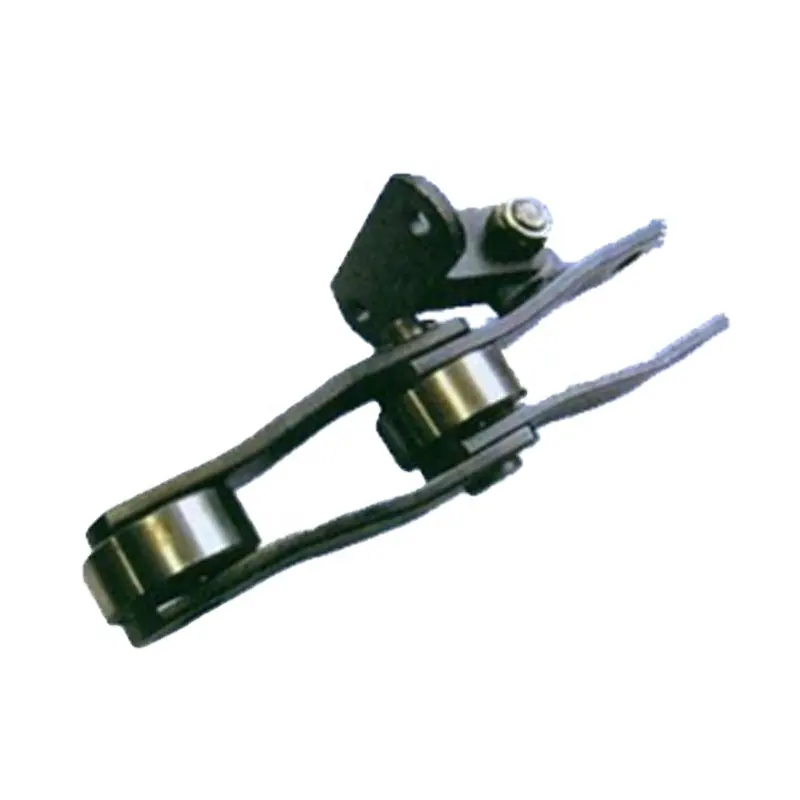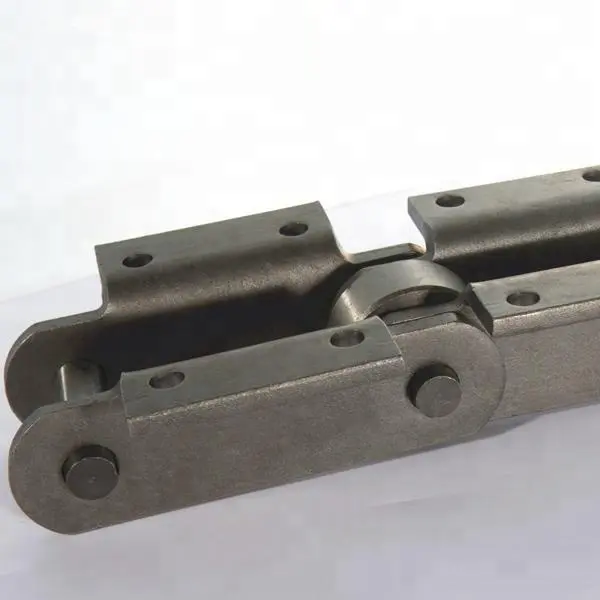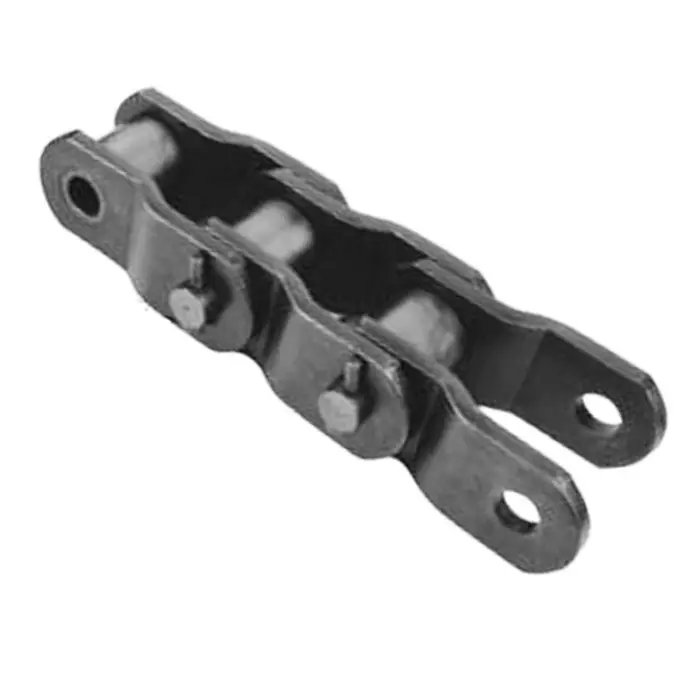Product Description
A, B series roller chain
SPECIFICATION:
1)A series chains:
A. Simplex: 25-1~240-1
B. Duplex: 25-2~240-2
C. Triplex: 25-3~240-3
D. Quadruplex: 40-4~240-4
E. Quintuple: 40-5~240-5
F. Sextuple: 40-6~240-6
G. Octuple: 40-8~240-8
2)B series chains:
A. Simplex: 04B-1~48B-1
B. Duplex: 04B-2~48B-2
C. Triplex: 06B-3~48B-3
D. Quadruplex: 08B-4~48B-4
E. Quintuple: 08B-5~48B-5
F. Sextuple: 08B-6~48B-6
G. Octuple: 08B-8~48B-8
3)Colors available: Natural, yellow, blue, black
4)Materiials: Carbon steel, stainless steel
| Usage: | Transmission Chain, Drag Chain, Conveyor Chain, Dedicated Special Chain |
|---|---|
| Material: | Alloy |
| Surface Treatment: | Polishing |
| Feature: | Heat Resistant |
| Chain Size: | 1/2"*11/128" |
| Structure: | Roller Chain |
| Samples: |
US$ 0/Meter
1 Meter(Min.Order) | |
|---|
| Customization: |
Available
| Customized Request |
|---|
Can mill chains be used in the automotive manufacturing and assembly processes?
Yes, mill chains can be used in the automotive manufacturing and assembly processes to facilitate material handling and conveyor systems. These chains play a vital role in ensuring a smooth and efficient production process in the automotive industry. Here’s how mill chains are utilized in this sector:
1. Material Handling: Mill chains are employed to handle and transport various components and parts throughout the manufacturing facility. They are used in conveyor systems to move materials between different stages of the assembly process.
2. Assembly Line: In automotive assembly lines, mill chains are often used to move car bodies and chassis along the production line. They are used in overhead conveyor systems, floor conveyors, and other configurations to ensure the seamless flow of components during assembly.
3. Jig Fixtures: Mill chains are integrated into jig fixtures, which hold and position car components during welding, painting, and other assembly processes. The chains allow for precise movement and positioning of the components, ensuring accurate alignment and quality in the final product.
4. Power Transmission: Mill chains are used for power transmission in various machinery and equipment within the automotive manufacturing process. They efficiently transfer power from motors to conveyor systems and other equipment, enabling smooth operation and consistent production.
5. Durability: The automotive industry often requires heavy-duty and durable solutions due to the large-scale production and continuous operation. Mill chains, made from high-quality materials, such as alloy steel, are capable of withstanding the demanding conditions and loads in automotive manufacturing.
6. Maintenance: Regular maintenance of mill chains is essential to ensure their optimal performance in automotive manufacturing. Lubrication, inspection, and prompt replacement of worn or damaged parts are necessary to prevent downtime and maintain efficiency.
Overall, mill chains are versatile and reliable components used in the automotive industry for material handling, assembly line movement, power transmission, and fixture positioning. Their ability to handle heavy loads, precise movements, and harsh manufacturing environments makes them a valuable asset in the automotive manufacturing and assembly processes.
Can mill chains be used in the cement and construction materials industry?
Yes, mill chains can be used in the cement and construction materials industry. The cement industry involves the production of cement, which is a crucial building material used in various construction projects. Mill chains play a significant role in material handling and conveyor systems within cement plants and other construction material manufacturing facilities.
Mill chains are utilized in cement and construction material handling applications such as:
- Raw Material Handling: Mill chains are used to transport raw materials, such as limestone, shale, clay, and iron ore, from storage areas to the processing units.
- Kiln Feeding: Mill chains are involved in feeding the raw materials into the cement kiln for the clinker production process.
- Clinker Handling: After the clinker is produced in the kiln, mill chains are used to convey and cool the clinker before further processing.
- Cement Grinding: Mill chains help transport the finished cement product to storage or packaging areas.
These applications involve heavy loads, high temperatures, and abrasive materials, making mill chains a suitable choice due to their durability and strength. However, it is crucial to select the right type and size of mill chain to ensure optimal performance and longevity in the cement and construction materials industry.
Overall, mill chains are integral in facilitating the efficient movement of materials throughout the cement manufacturing process, contributing to the productivity and success of the industry.
Can mill chains be used in grain milling and food processing applications?
Yes, mill chains are commonly used in grain milling and food processing applications due to their ability to handle bulk materials and withstand harsh operating conditions. Here’s how mill chains are utilized in these industries:
1. Grain Milling: Mill chains are extensively used in grain milling facilities to transport grains, such as wheat, corn, rice, and oats, through various stages of the milling process. They are used in conveyors to move grains from one processing unit to another, including storage bins, cleaning machines, separators, and milling machines. Mill chains in grain milling applications must be resistant to abrasion and corrosion, as grains can be abrasive and may contain moisture or other contaminants.
2. Food Processing: In the food processing industry, mill chains are employed to handle a wide range of food products, including fruits, vegetables, meat, dairy, and bakery items. They are used in conveyors and processing equipment to move raw materials and finished products throughout the production process. Food-grade mill chains are essential to ensure hygiene and prevent contamination of food products. These chains are designed with materials that are safe for direct contact with food and are easy to clean and maintain.
Both grain milling and food processing require reliable and efficient material handling systems to maintain the quality and integrity of the products. Mill chains play a crucial role in ensuring smooth and consistent movement of materials, contributing to the overall efficiency and productivity of these industries.
editor by CX 2023-11-08




